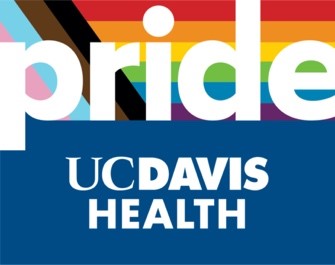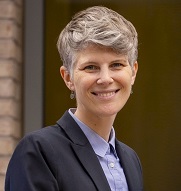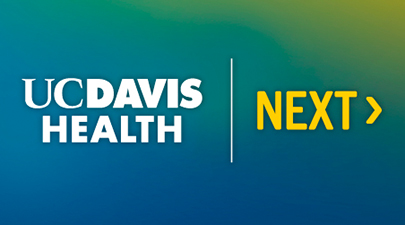Leadership message: “Uncomfortable: 25 Years of Pride Month”
Dear Colleagues,

June marks the 25th anniversary of federal recognition of Pride Month, initially designated by President Bill Clinton’s proclamation in 1999. Pride Month serves as a powerful reminder of the ongoing efforts to promote equity in the civil liberties and privileges of people who are lesbian, gay, bisexual, transgender, and queer (LGBTQ+).
In preparation for this message, I sought a unique perspective and asked my eight-year-old, "What does pride mean to you?" Their response, delivered with curious inflection, was simple yet insightful: "To be comfortable?" This perspective resonates. The dictionary definition further emphasizes "consciousness of one’s own dignity." As we observe Pride Month, I urge you to reflect on your own relative comfort and contemplate if your colleagues are afforded the same dignity.
I challenge you to consider sacrificing some of your comfort as an ally to the LGBTQ+ community in favor of serving as an accomplice. As diversity, equity, and inclusion expert Willie Jackson articulates in his article, "Don’t be an Ally, Be an Accomplice," real advocacy often comes at the expense of comfort. Being an accomplice demands more of us: it requires sustained and intentional action – a commitment to questioning our own biases, proactively dismantling systems of privilege, and advocating for meaningful change.
Research consistently shows that individuals in majority groups possess significant influence when advocating for those in the minority. Let us reaffirm our commitment to leveraging our privilege as a force for good. Let us amplify the voices of those who are often silenced and marginalized. Let us strive to create a workplace culture that actively esteems LGBTQ+ employees as sources of strength, leadership, and innovation.
UC Davis Health is a powerful collective. We call upon all of us to express kindness and inclusion to all in the LGBTQ+ community and take particular attention to affirm and support patients and colleagues who are transgender and non-binary.
To deepen your knowledge and get involved, please consider the resources included at the bottom of this message.
Designation of Pride Month was initially inspired by the 1969 Stonewall Uprising, a demonstration that was remarkably uncomfortable. Not until 2019, 50 years later, did the police department formally apologize for the actions of the police officers who raided the Stonewall Inn and perpetuated violence in response to weeks of demonstrations. With time, commemoration has become inadequate. Pride Month has evolved from an opportunity to recognize LGBTQ+ history to an imperative to inspire action towards achieving equity, safety, and civil rights.

We are proud to champion change and continue our leadership in health equity, diversity, and inclusion at UC Davis Health. I invite you to step out of your comfort and join us.
In solidarity,
Evan Priestley, MPH
Interim Chair, PRIDE Employee Resource Group
Interim Director, UC Davis Health Affiliate Network
To deepen your knowledge and skills, please consider the following resources:
Get involved:
- Join the PRIDE Employee Resource Group.
- Join the positive media messaging moment, please click on this link!
- Donate to support the UC Davis Health Gender-Affirming Care Patient Assistance Fund or the LGBT Community Health Education Fund.
- Donate to the PRIDE Employee Resource Group Initiative.
- Like the PRIDE Employee Resource Group Facebook page and flood the comments with positive messaging.
- Join the Improving OUTcomes Conference planning committee in support of LGBTQ+ healthcare and education.
- Volunteer locally with Sacramento LGBT Community Center and join the Sacramento Rainbow Chamber of Commerce.
- Participate in the Sacramento LGBTQ+ Pride March on June 9th. As a registered participant, join pre-March activities or line streets in support of the Sacramento LGBTQ+ march to the capital. Click here for additional information on the health system’s Pride Information Hub.
Education:
- Watch: Pronouns and Gendered Language [Webinar recording]
- Read: How to be an Ally, Transgender 101, pronouns and inclusive language, planning inclusive events from the LGBTQIA Resource Center at UC Davis.
- Listen: Be An Inclusion Ally audio book summary, From Prejudice to Pride: A History of LGBTQ+ Movement audio book summary.
- Discover: LGBTQ+ 101 e-course in LMS and National LGBTQIA+ Health Education Center
- If you’re an Epic user: Gender Recognition and Lived Name Compliance: A Guide for UC Davis Health Epic users
Considering year-round engagement?
At UC Davis Health and UC Davis there are LGBTQ+ advocates that work year-round to build health equity, inclusion and belonging through the Vice Chancellor’s LGBTQ+ Advisory Council, the PRIDE Employee Resource Group (ERG) at UC Davis Health, and the UC Davis LGBTQIA Resource Center.
Advocates are working to ensure that we have policies and practices in place that recognize and support an individual’s identity, to ensure all employees access to education, resources, and programming, and to build a supportive community for all – including our patients, guests, students, staff and faculty.
Since 2012, the Office for Health Equity, Diversity and Inclusion and the Vice Chancellor’s LGBTQ+ Advisory Council highlight UC Davis Health’s commitment and support of the LGBTQ+ community through a continued designation as a LGBTQ+ Healthcare Equality Leader, as part of the Human Rights Campaign Foundation’s Healthcare Equality Index report.





